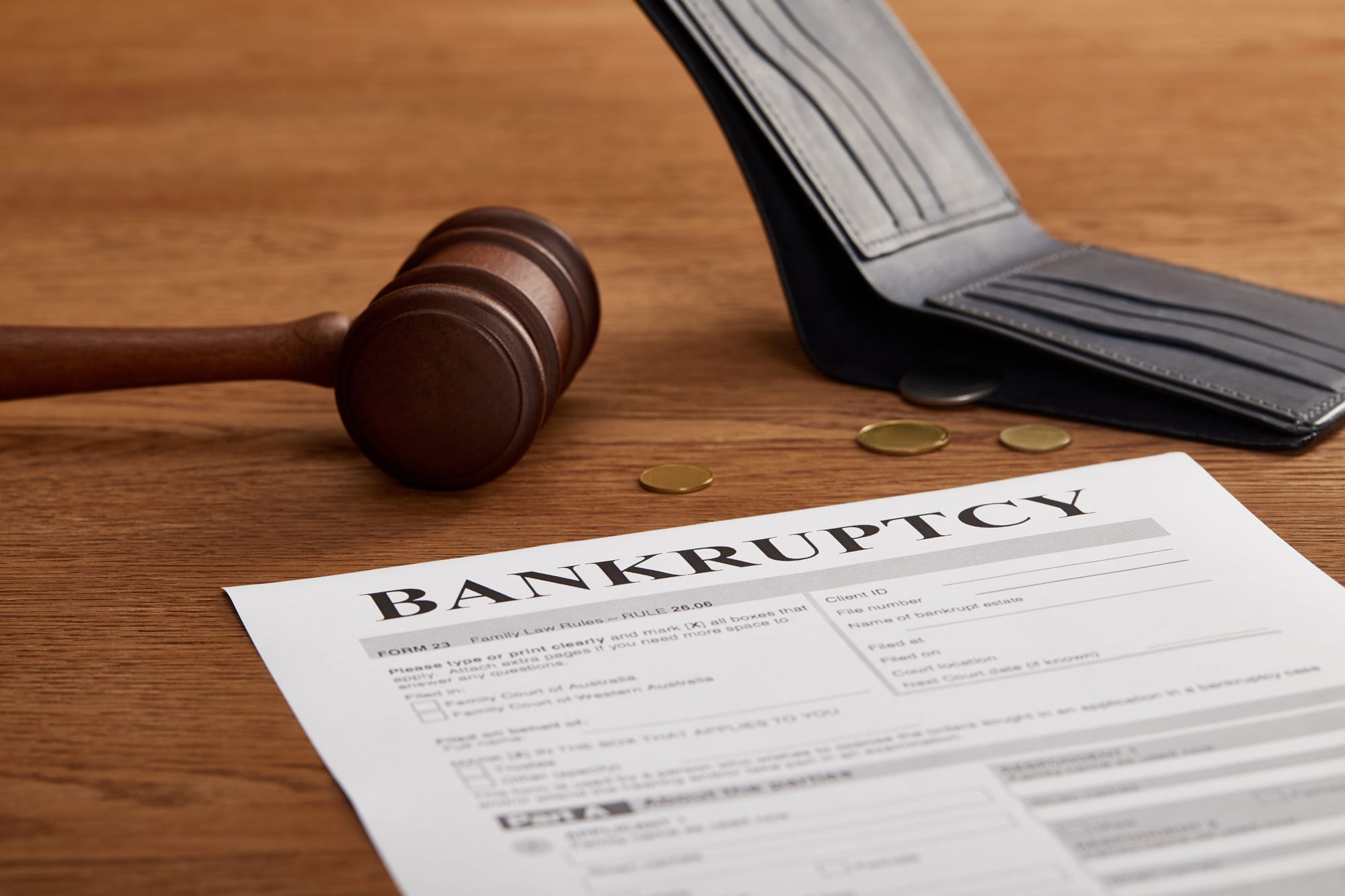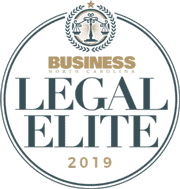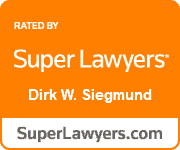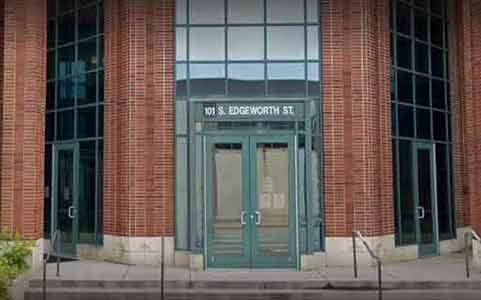Bankruptcy for Business Owners

If your company has fallen on difficult times, and you are worried about being able to keep running, paying vendors, and meeting payroll, then you may need to consider applying for a declaration of bankruptcy.
No one goes into business expecting to be unsuccessful or fail. But sometimes a business venture can struggle to find its footing in the marketplace, while having problems meeting their financial obligations.
Filing for bankruptcy does not have to be the first step toward ending your company. The truth is bankruptcy may allow you to continue with your business operations while providing you with a fresh start. The decision to file for bankruptcy is not easy, but it may be the best option for your company.
What is Business Bankruptcy?
Bankruptcy is a legal process a business goes through in federal court if it does not have sufficient cash flow to pay its debts. If your company currently owes money to creditors, the bankruptcy process is designed to help your business eliminate or repay its debt under the guidance and protection of the bankruptcy court.
Of course, every business owner wants to avoid bankruptcy court. But with recent economic downturns and market fluctuations, corporate bankruptcies have become more common. In 2020, bankruptcy filings in the United States totaled over 682,000.
Contact a Business Bankruptcy Attorney Today
Discuss your options with a bankruptcy law expert
Classifying Your Business
The first step in bankruptcy filing is to determine your business’ classification. There are two main categories:
- Sole proprietorships are legal extensions of the owner. This means the owner is responsible for all assets and liabilities
- Corporations and partnerships are legal business entities that are considered separate from their ownership
Types of Bankruptcy
Choosing the type of bankruptcy protection to apply for is an important step to assure your business emerges from the proceedings in a position that will benefit you and your enterprise in the long term. The two main descriptions for business bankruptcies are:
- liquidation
- reorganization
The different types of bankruptcies are referred to as “chapters” in the U.S. Bankruptcy Code. Consulting with a bankruptcy lawyer will help you decide on the best option to file bankruptcy.
- Chapter 7 bankruptcy allows you to close or liquidate your company.
- Chapters 11, 12, and 13 are considered reorganization bankruptcies. These options require you to agree to a payment plan, and may allow you to keep your business afloat while reducing your debt.
Small Business Bankruptcy vs. Corporate Bankruptcy
Small businesses, whether they are sole proprietorships, general partnerships, corporations, or limited liability companies (LLCs), have choices when exploring bankruptcy.
- Chapter 7: This is the most appropriate option for an enterprise that does not have a future in business.
Both individuals and businesses can qualify for relief under Chapter 7 bankruptcy. A sole proprietor can discharge many debts, including credit card balances, medical bills, lease obligations, utility bills, and even some loans.
If you are the sole proprietorship owner of a small business, you may file Chapter 7 on behalf of your enterprise or for yourself. The most important thing to remember is that In most cases, your business will be permanently shut down.
Filing a bankruptcy petition under Chapter 7 will stop most collection agencies from knocking on your door. But the protection you receive under the petition is usually effective for a relatively short period of time.
If your business is a corporation or limited liability company, Chapter 7 bankruptcy provides you with a path to liquidate your company and its assets.
In both situations, when you file Chapter 7 a bankruptcy trustee is assigned by the court to evaluate your assets. This trustee is responsible for selling off the properties of the business and paying creditors who have submitted claims against the company.
- Chapter 11: This category of bankruptcy is beneficial when your business is generating some income, but not enough to cover all your expenses. Chapter 11 allows your company to reorganize while continuing to run and conduct business. It can be the best choice if you have a good chance of rebuilding your company.
Under Chapter 11, a repayment plan must be approved by the court. Also, a Chapter 11 bankruptcy application can be a complicated and lengthy process. Consulting a qualified bankruptcy lawyer would be beneficial in understanding the process.
- Chapter 13: This bankruptcy chapter is used for small businesses when reorganizing is the objective. Under Chapter 13, you can continue to run your business while repaying creditors without giving up your assets.
It is only available for sole proprietors and individuals. Chapter 13 is not available for partnerships, corporations, or LLCs. Be aware that there are limits on the amount of secured and unsecured debt in this category.
- Chapter 12. Created in 2005, this category covers farmers or fishermen facing financial difficulties. It is limited to this very small niche of the population and accounts for a very small percent of the total bankruptcies filed in the U.S.
Choose the Right Bankruptcy Attorney and Law Firm
If your business is struggling with debt and you are considering a declaration of bankruptcy, it is important to have the right team at your side to manage your legal needs.
At Ivey Mcclellan, our bankruptcy lawyers proudly provide our clients with in-depth bankruptcy experience and knowledge. Our team is skilled in every aspect of business law. Our bankruptcy attorneys are efficient, thorough, and dedicated to giving you the best representation possible.
Ivey McClellan is not just a bankruptcy law firm, we are a full-service organization, helping individuals and businesses with services and resources to meet your needs. With nine attorneys and a strong support team, our law firm has assisted businesses as well as individuals in filing their bankruptcy cases.
We are one of the few remaining Debtor based business law firms in Greensboro, NC. At Ivey Mclellan, we have expertise in North Carolina state law, and the ability to assist you with a variety of legal issues.
Bankruptcy laws, as well as the bankruptcy process itself, are complex and time-consuming. State laws and bankruptcy rules can be overwhelming and confusing, especially for an individual with no prior experience dealing with the court. Our bankruptcy attorneys will be with you every step of the way to submit the correct paperwork, complete official bankruptcy forms, and file any necessary documentation correctly and on-time.
To learn more about small business and corporate bankruptcy, contact us today for a consultation. We would welcome you at our Greensboro or Eden offices, or we can schedule a virtual meeting with you at your convenience no matter where you are located. Bankruptcy is not a procedure that you need to face alone.
Schedule An Appointment
Office Locations
Greensboro
305 Blandwood Ave
Greensboro, NC 27401
Phone: (336) 274-4658
Fax: (336) 274-4540
Eden
551 Monroe Street
Eden, NC 27288
Phone: (336) 623-4600









